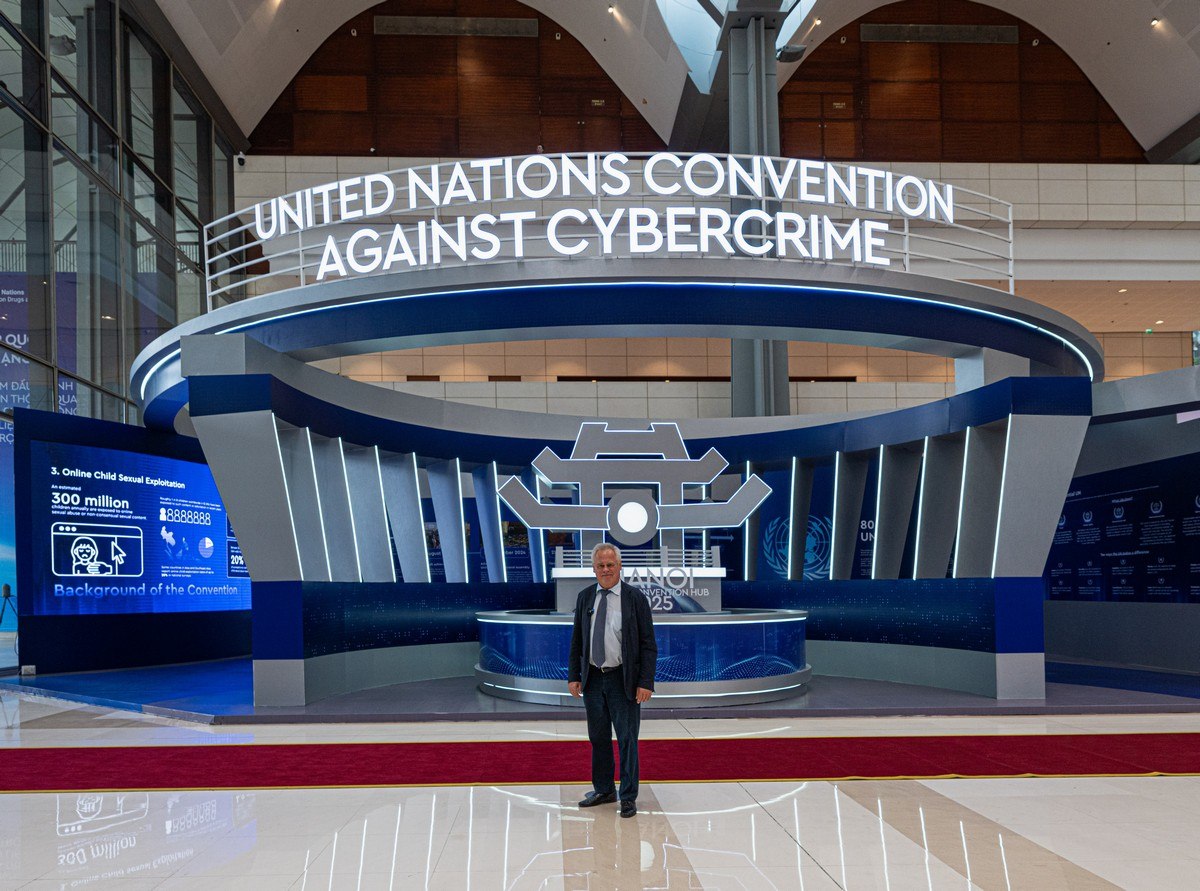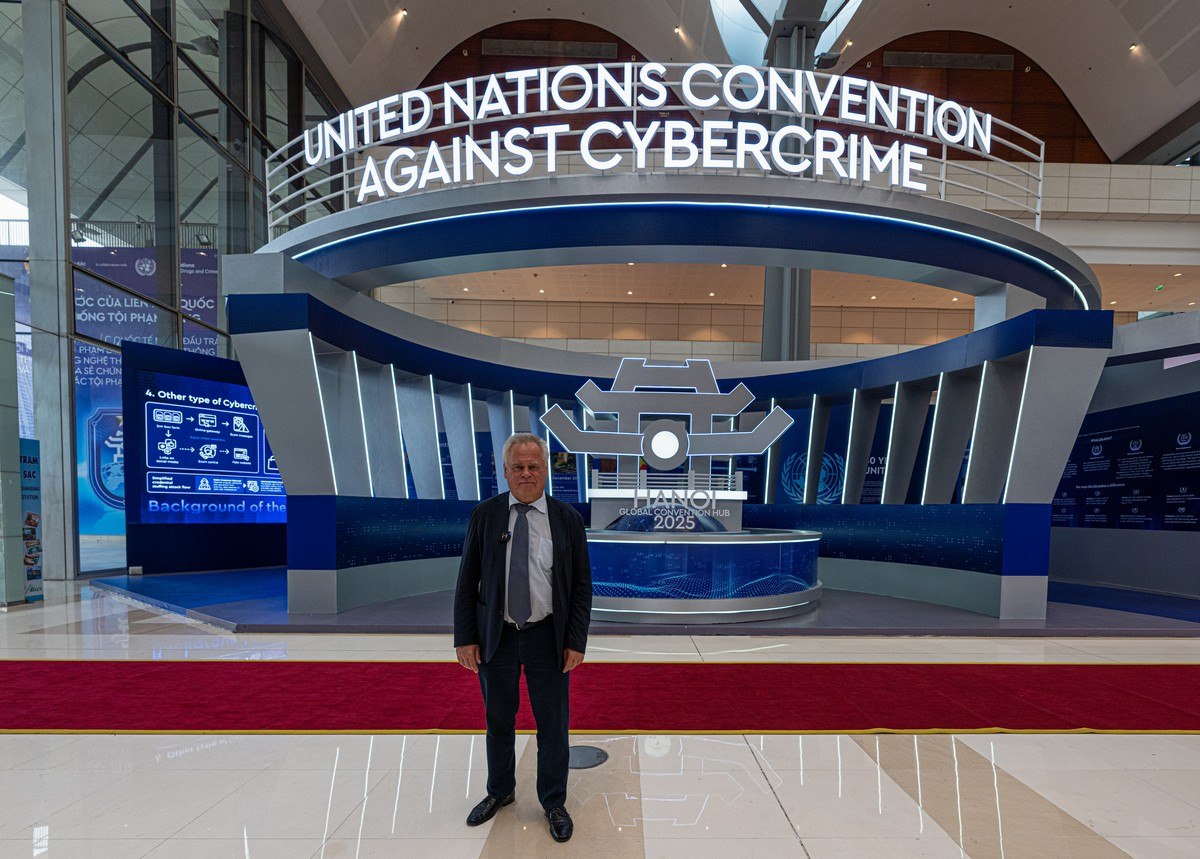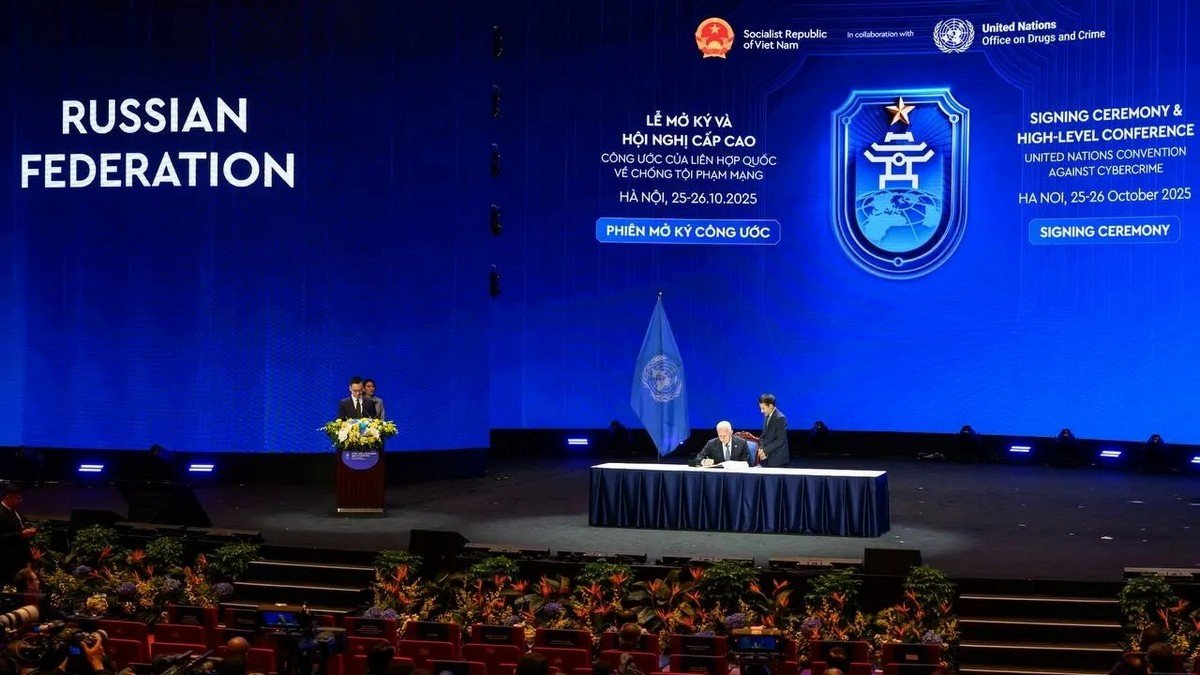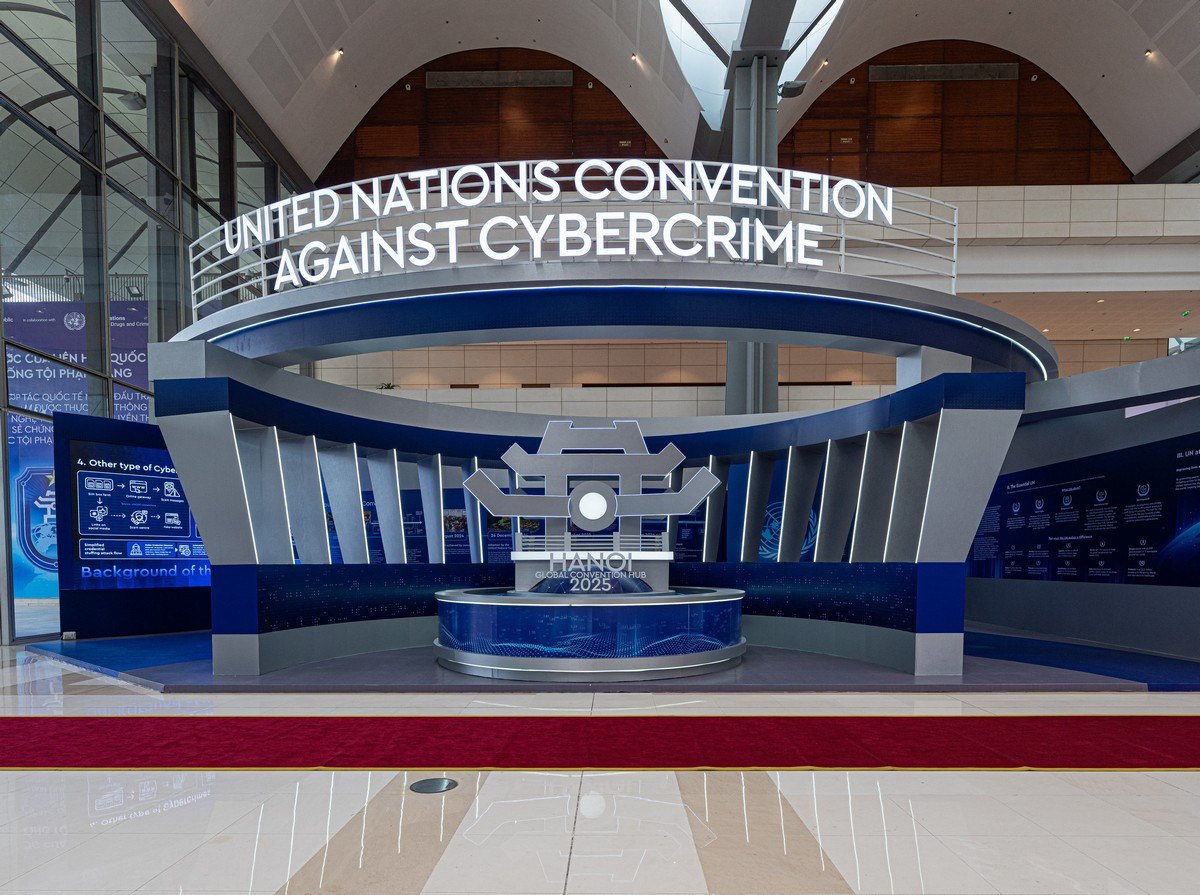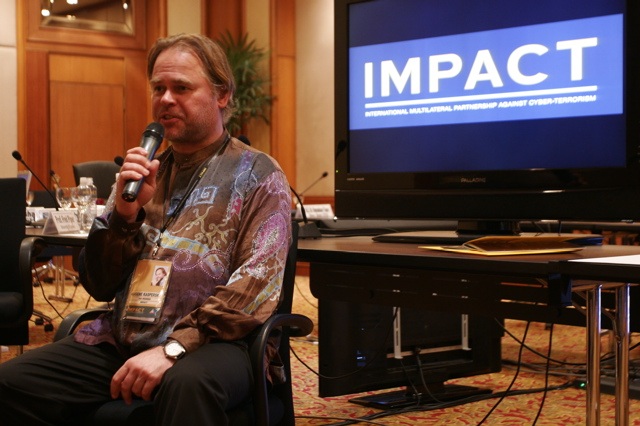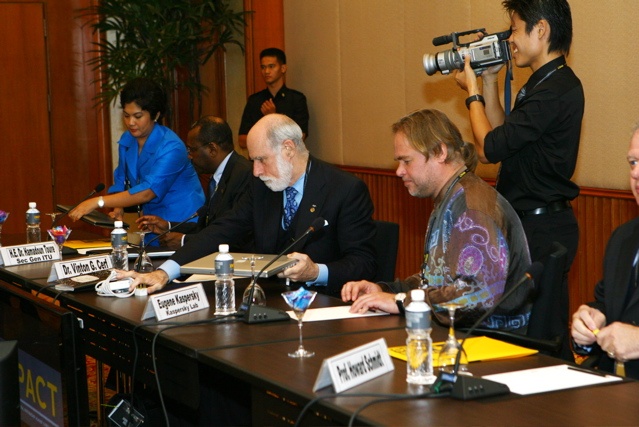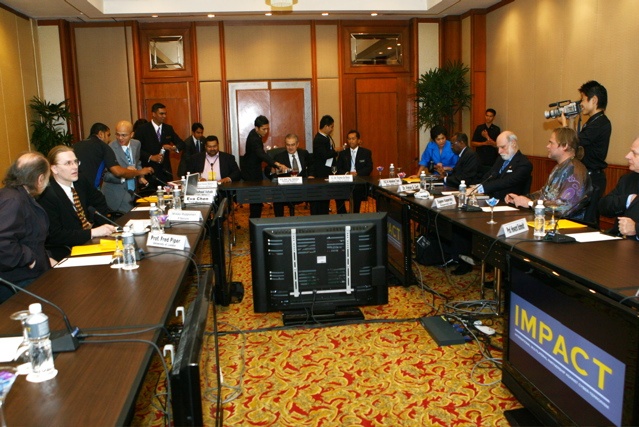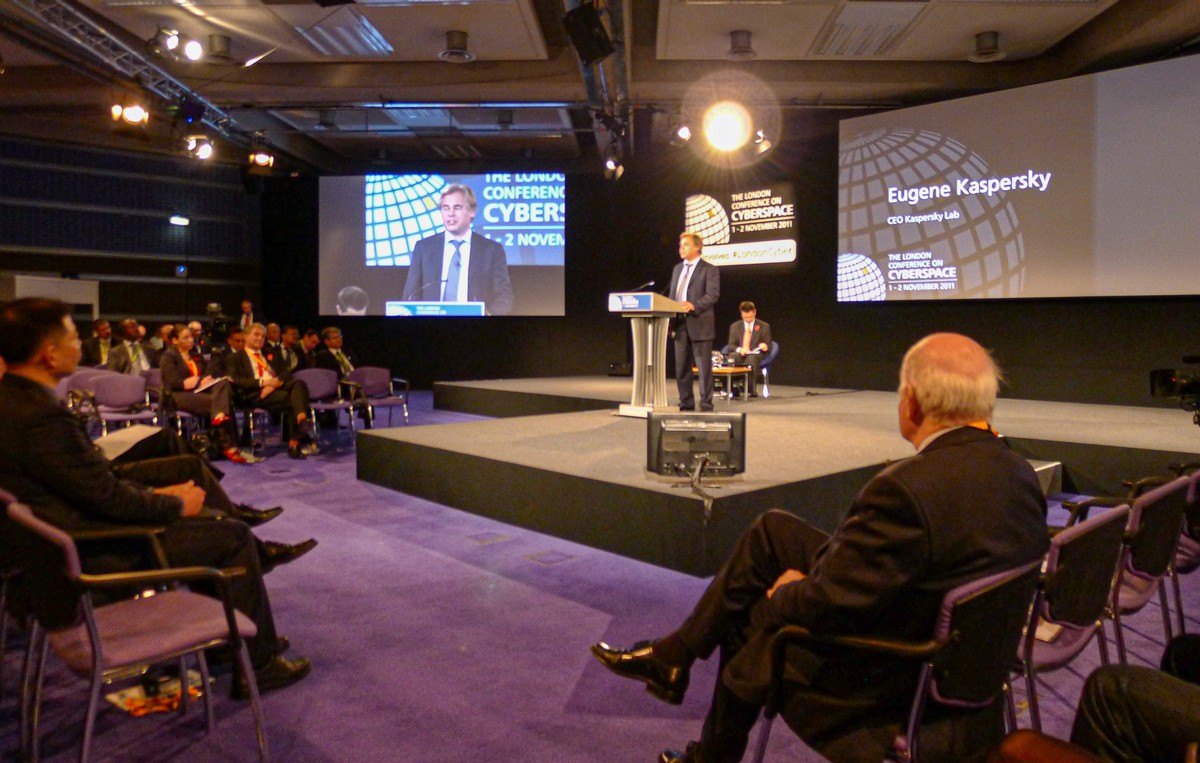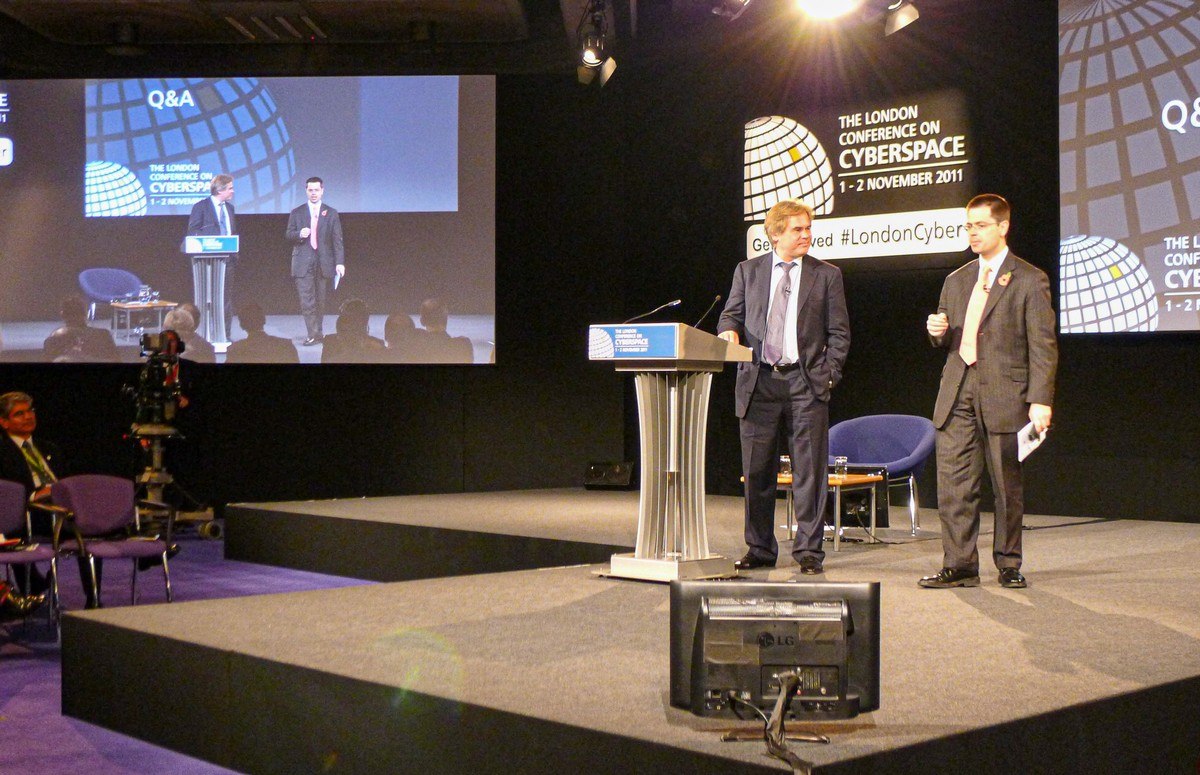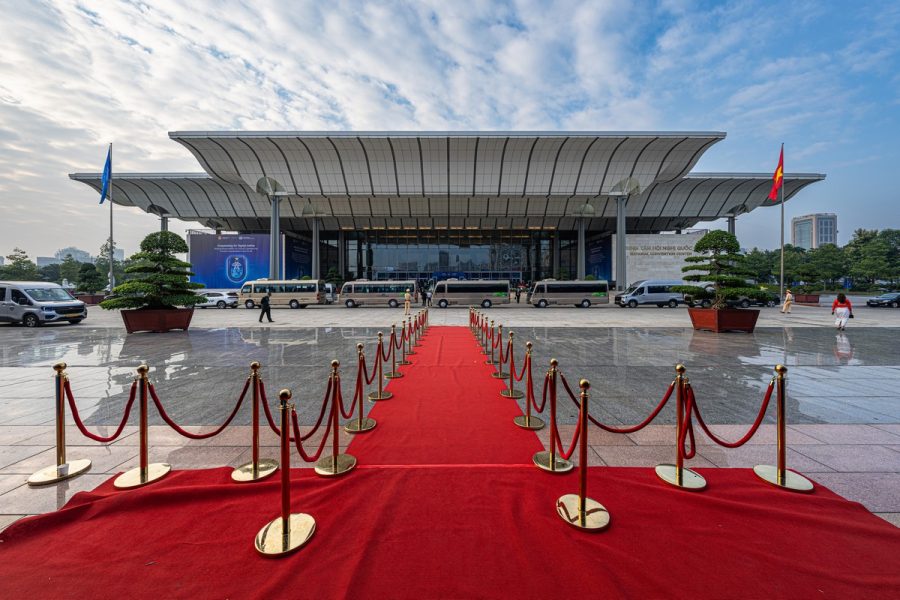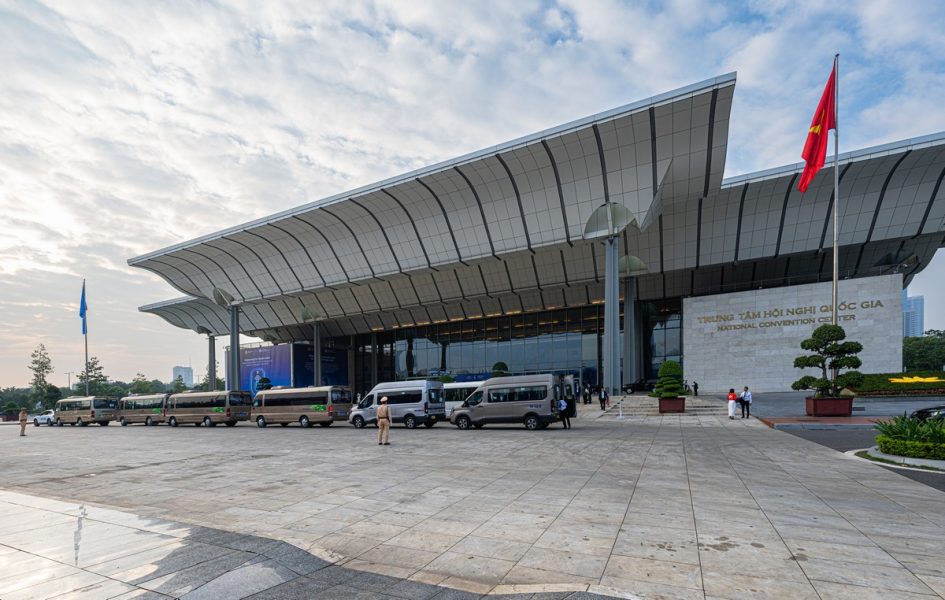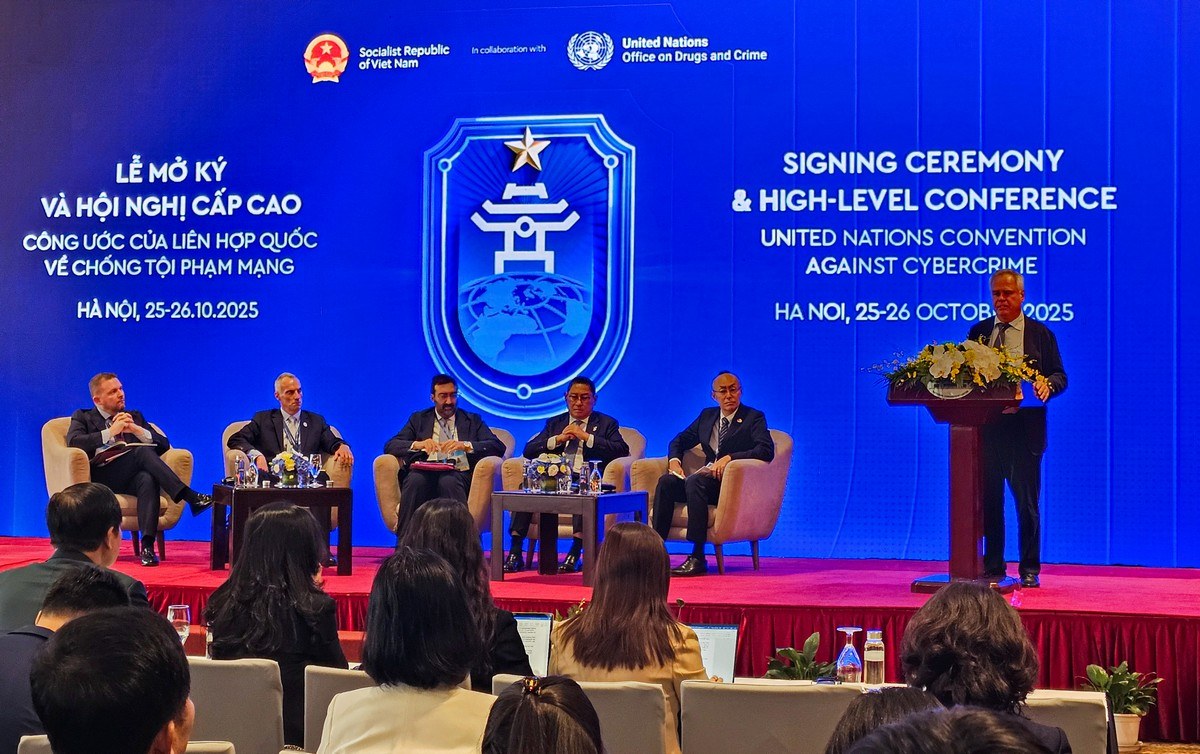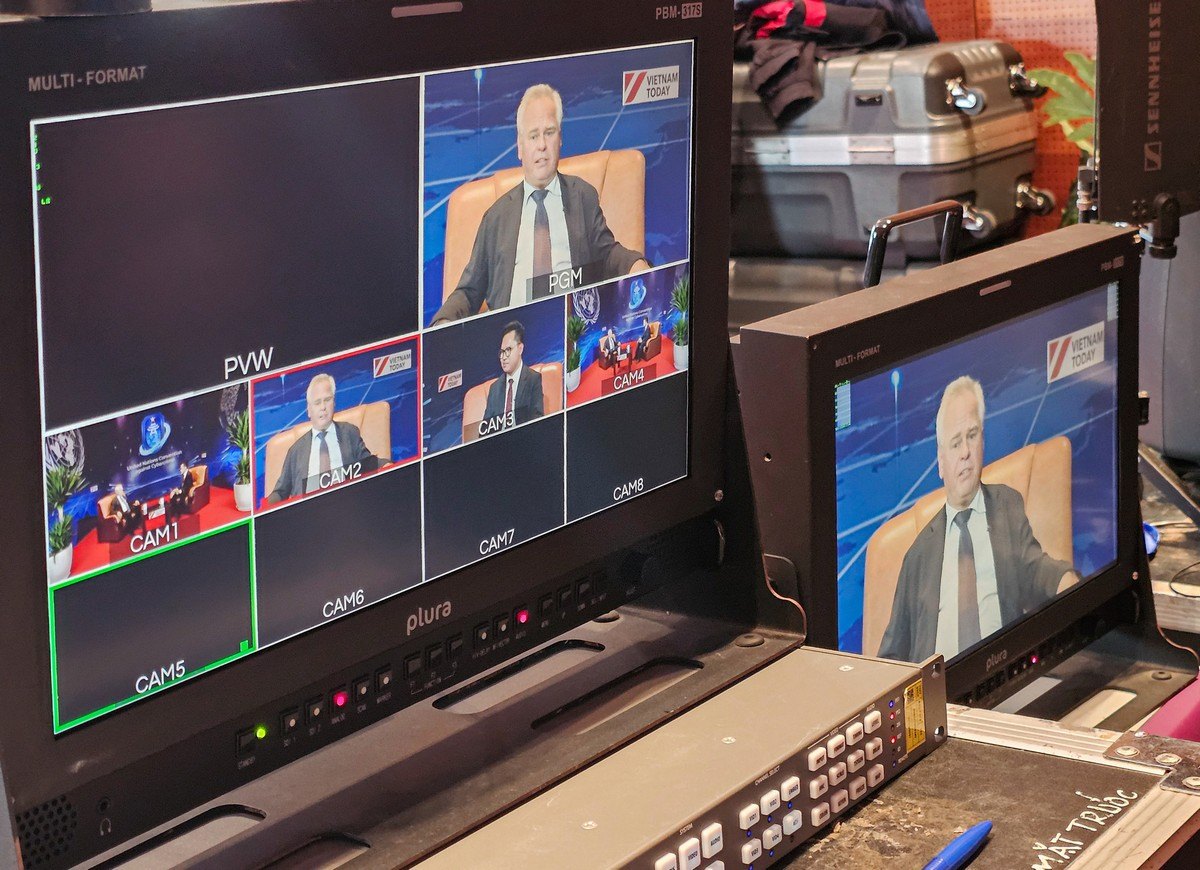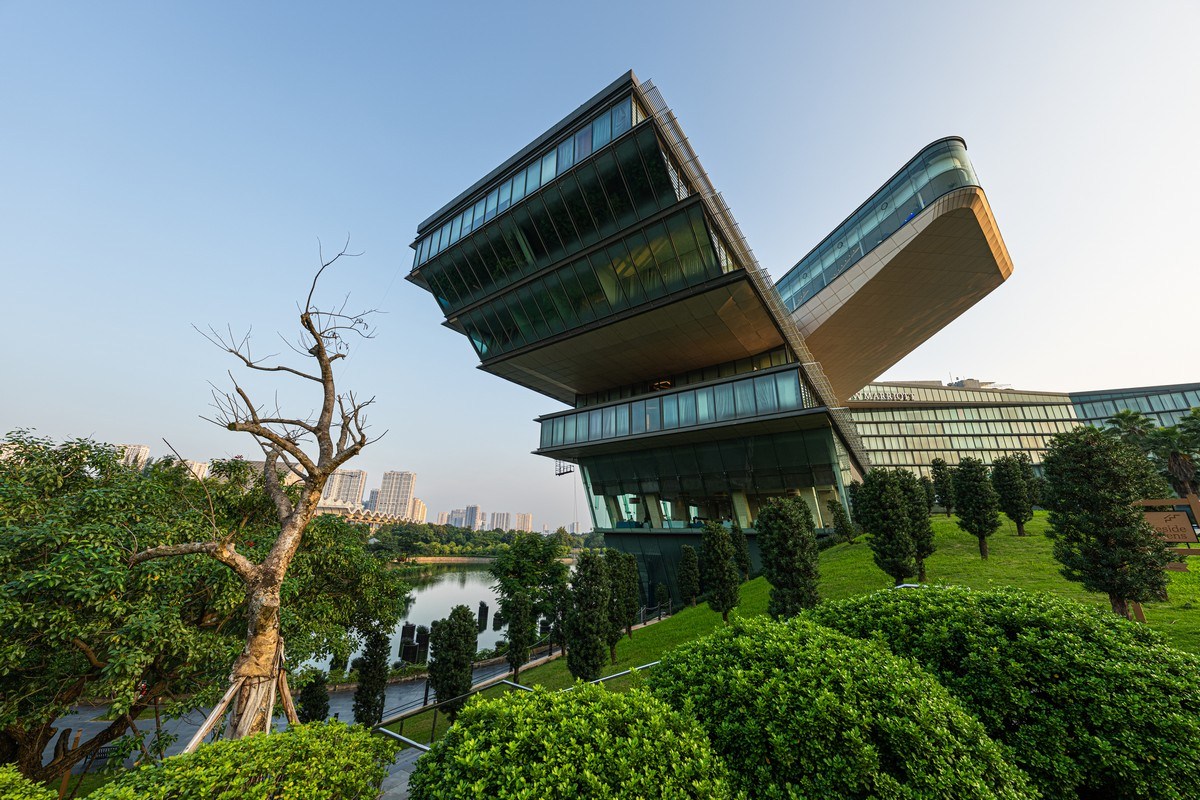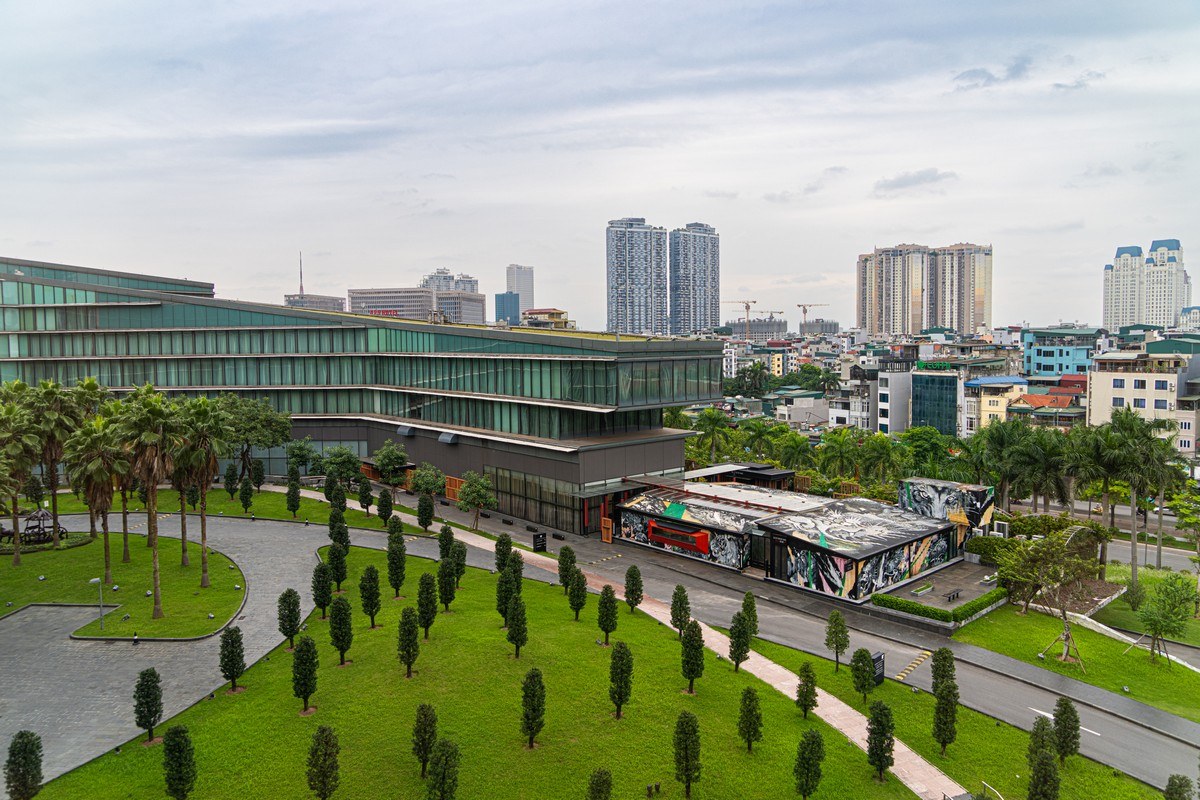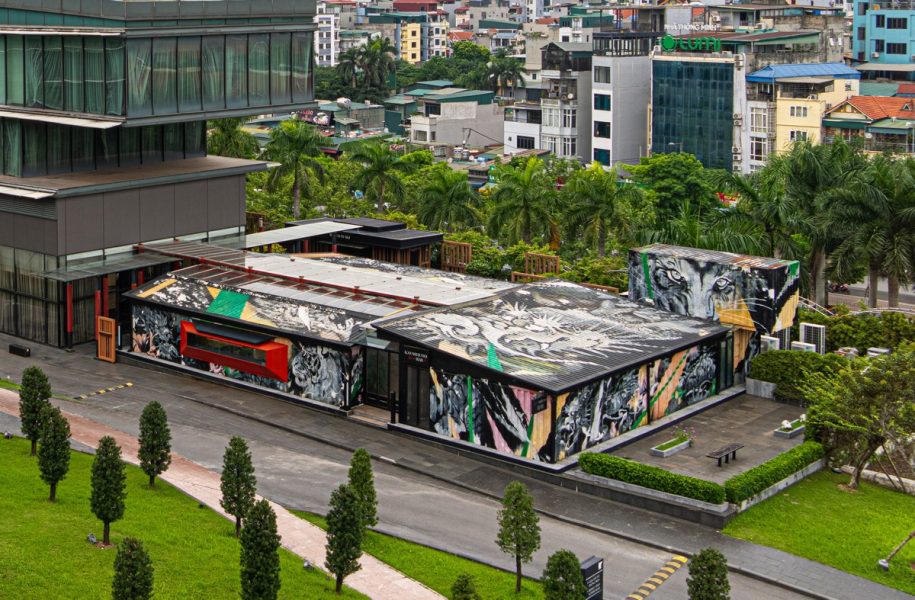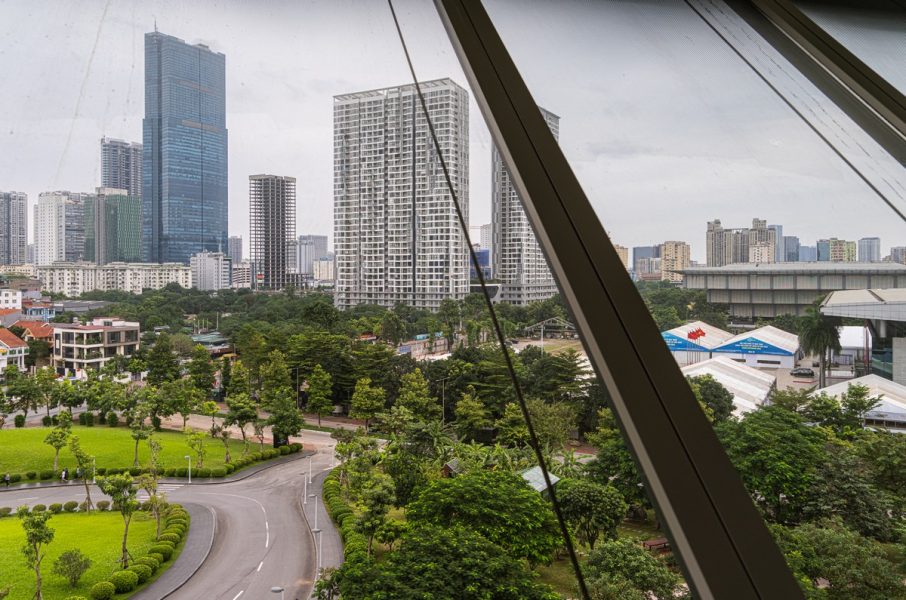October 28, 2025
Clean shaven, suit & tie mandatory? This better be important!
What, don’t recognize me?…
Sure – the clean shave and suit and tie are a combo rarely seen on my person, but yes – it’s me ).
The tie is actually really old, though it’s only been worn a few times. For yes – I don’t often find myself at really official events, and the rest of the time I prefer comfortable clothes.
Those pics were taken at the weekend – on the Saturday (October 25, 2025) – in Hanoi, Vietnam (as indicated just to the side of me). And it was there, on a warm, foggy, tropical morning, that a historic event took place: the signing of the UN Convention Against Cybercrime. Congratulations everyone! Hip hip hooray!
“The Convention is the first comprehensive global treaty on this matter, which provides States with a range of measures to be undertaken to prevent and combat cybercrime. It also aims to strengthen international cooperation in sharing electronic evidence for serious crimes.”
I wasn’t at the ceremony myself – I’m not a government official, and I had other work to do. So, here’s a photo I found online:
I arrived at the event a little later… just to make sure they’d gotten everything right :)…
For I’ve talked about the importance of international cooperation on cybersecurity more times than I can count down the years, and every time I simply repeat myself – since the message doesn’t change.
Why is international cooperation against cybercriminals so crucial? It’s because there are no borders in cyberspace. There’s no real distance or time either – everything happens instantly, across any borders and at any distance.
Cybercriminals of all stripes operate in this environment like it’s their own kitchen. They do whatever they want, with very little in their way. The damage as a result can be enormous. Millions (hundreds of millions?) of folks around the world are affected by cyber-fraud, ransomware, and sabotage. Targeted, professional attacks can paralyze major companies and organizations – including those in industry and critical infrastructure.
To investigate these crimes, collaboration between police forces from different countries, and coordinated action by their respective government agencies are essential. The reason is simple: each police force only has jurisdiction/authority within its own national borders. Add to that the fact that different countries have their own legal peculiarities, which don’t always align – and not just with faraway countries but even with neighboring ones – and what you get is cooperation not being so straightforward.
So, while cybercriminals move freely across digital networks as they wish, the slow machinery of governments and law enforcement gets tripped up simply trying to understand and deal with cyberthreats as they arise.
I recall how about 25 years ago (actually, around 2002–2003), I started telling anyone who’d listen that international cooperation was vital for fighting cybercrime, and that we needed something like a Cyber-INTERPOL or a UN organization responsible for coordinating cyber police, exchanging information, developing consistent criminal law frameworks, and so on.
By my count, this is now the fourth (!) serious attempt, and I really do hope it works this time (as I did each previous time, of course). I hope that this date (October 25, 2025) will go down in cybersecurity history as the day something significant finally happened!
So what was it like before all this? At first, there were no distances, no time, no land, no internet. Only floppy disks zipped around the globe, and modems whistled their nightly connections over FidoNet. Then programmers gave in to temptation and started writing malicious code and hacking here and there – which didn’t sit well at all with the rest of the online population. So they decided to find the evil hackers, isolate them, and send them far away.
This took place around the time of the very first internet worms. Back then, no one was robbing anyone – computer buffs were just “playing around”, launching internet worms that accidentally knocked out corporate networks or clogged internet connections with garbage traffic. Look up “Melissa”, “I Love You”, “Helkern”, and so on.
It was obvious even then that this mess couldn’t be solved with technology alone. Higher-order resources were needed. That’s why, in 2001, the Budapest Convention on Cybercrime (the “first attempt“) was signed. Unfortunately, the convention had some fundamental geopolitical contradictions built into it from the outset – I guess you could call it birth trauma; as a result, it’s never been adopted by more than half the world’s countries. It simply wasn’t suitable for global use.
The second attempt: Malaysia, 2008. The Malaysian government decided to tackle internet crime and cyber-sabotage in earnest – launching the IMPACT project. It was allocated a serious budget, built a small but comfortable office, and held a conference and an opening ceremony; alas, nothing substantial came from it. For me, just a few low-res photos remain:
The third major attempt: London, 2011. I remember taking part in the International Multilateral Partnership Against Cyber Threats , with major figures – prime ministers, presidents – giving speeches from grand podiums about how essential and absolutely critical international cooperation is. Cybercrime is a global evil, the damage is only growing, and the issue needs sorting – fast. Let’s all join hands, friends, and together defeat the global cyber-evil that threatens our collective good…
The then-UK Minister for Security and Counter‑Terrorism is right behind me moderating the talks, by the way! ->
So what came of it? Nothing really. We talked, shook hands, applauded, and moved on. Then things only got worse – geopolitics got in the way. Sadly, cooperation between regions and different centers of the cyberworld essentially ceased.
And that’s bad, because it only benefits the cybercriminals – of every nationality.
And now, at last, the fourth attempt. Like I say, I hope this time it succeeds, of course. Somehow I’m optimistic – especially since it’s a significant sign that, under today’s circumstances, the agreement was reached within the UN, and all the main provisions are written into the founding document.
What else?
Discussions around these documents have been ongoing for years – having started back in 2017. Our own experts, lawyers, and communications specialists were involved.
Of course, the convention won’t take effect immediately. It still needs to be ratified by the Member States. Change will come slowly, and there’ll be challenges. But, as they say, the road is mastered by those who walk it. The fact there’s no simple solution doesn’t mean the problem should be ignored.
By the way, the convention features an abundance of practical, really useful things – from harmonizing terminology and definitions, through mechanisms for international information exchange on cybercrime, to strengthening public-private cooperation in cybersecurity. All much needed, and all very welcome. Like!…
So, again – hip hip hooray!
What else can I say? Just that’s it’s real nice over here. I should visit more often!…
Oh – and here’s me behind a very nice bouquet of flowers. I felt like… the prodigal son upon his homecoming: highlighting the importance of global cooperation – at the (final?!) summit on… global cooperation!
A few interviews for the Vietnamese press, and a couple TV appearances ->
Plus several official and business meetings in the city.
Sadly, there was no time for any sightseeing. So for dessert, just a few photos of the hotel’s woah-design:
The view from my window:
Never made it to this bar ->
And that’s all from Vietnam folks. Back soon!…
